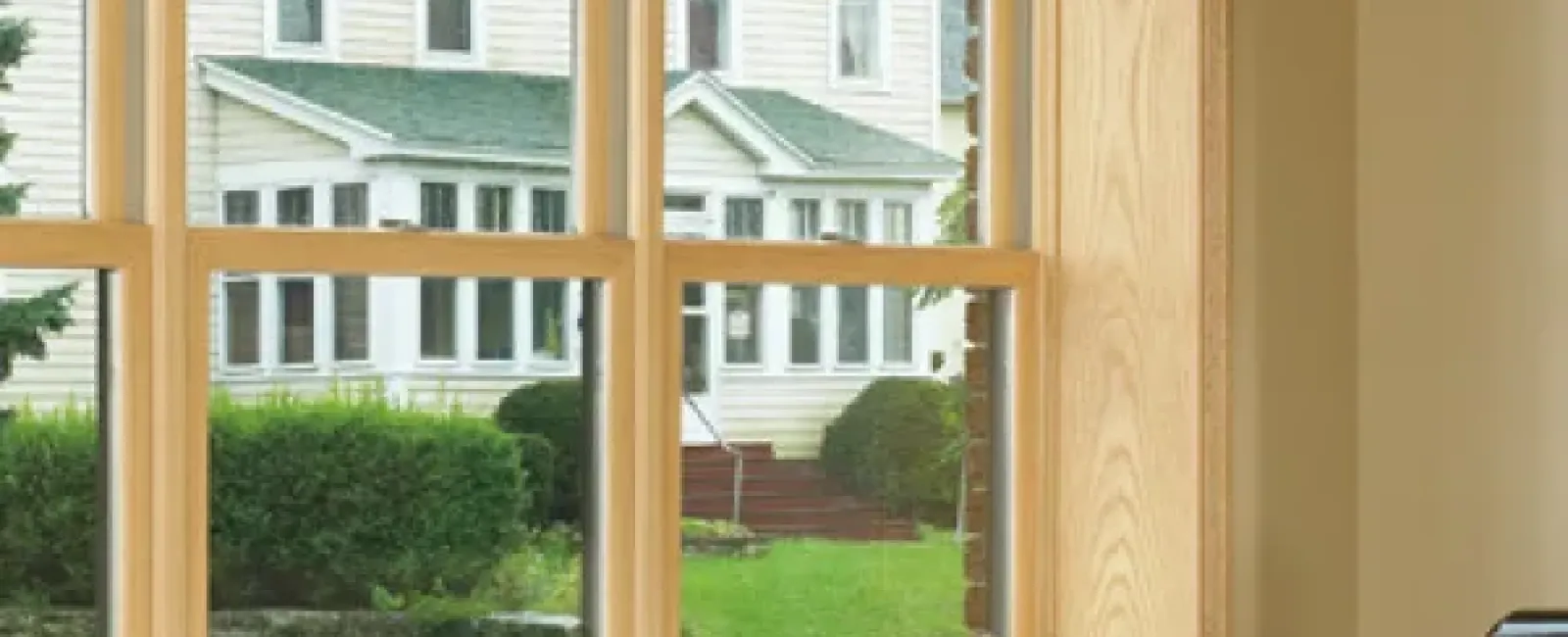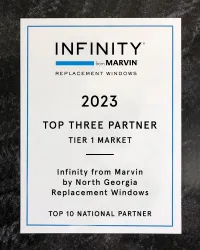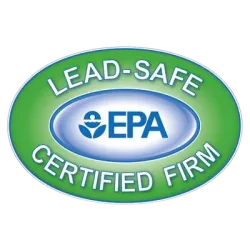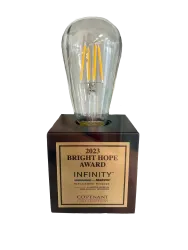Most people live in homes exposed to some degree of noise. If you live on a high-traffic street or within audible range of an airport, you likely want to consider upgrading your windows to reduce how much of this sound can be heard inside your home.
Infinity® from Marvin Replacement Windows offers several options for installing replacement windows that make a significant difference in the amount of sound that travels through your glass. Interested homeowners have three options when shopping for replacement window glass: Standard Transmission Class (STC) glass, which acts as a buffer for the typical sounds generated inside or near your home; Outdoor/Indoor Transmission Class (OITC) glass, which covers a wider range of frequencies to mitigate sound coming from highways, trains and airplanes; and glass featuring a layer of PVB laminate, which is designed for noise mitigation as well as increased security.
When you shop with NG Windows, we'll help you pick out the right glass to address your specific needs. Here are some of the glass features we use to mitigate sound and improve the peacefulness of your home's interior.
Glass Thickness
A window pane's thickness is one of the most basic factors affecting the amount of sound audible through the glass. In general, a thicker pane will prove more effective at reducing sound than a thinner pane. Testing from Cardinal Glass has found that increasing glass thickness from 3 mm to 6 mm can increase the window's acoustical glass rating by four to six points, an improvement that will be clearly audible to any homeowner.
For most homes, glass thickness exceeding 6 mm thick is unnecessary and may distort the quality of your view. In addition to thickness, there are other steps to improve your replacement glass's sound mitigation.
Acoustic Air Gaps
Air gaps are a common feature in insulated windows to reduce the amount of audible sound passing through the glass. This airspace can range from 6.5 mm to 19.5 mm in width, providing a buffer to sound from the outside. An air gap increases the STC rating (an average amount of noise stopped at various frequencies and measured in decibels) of a window by effectively absorbing some of the sound waves passing through, instead of allowing a hard material to serve as a conductor. The larger the air gap, the higher the STC your window pane will have, and this air gap will help reduce noise without compromising the clarity of your window.

Although both argon and oxygen may be used to fill the air gap between two glass panes, testing has shown no significant or acoustical sound difference in performance between the two gases.
PVB Laminate
Unlike STC and OITC glass, PVB laminate is a relatively new addition to the Infinity from Marvin family. PVB laminate is a great choice for any home where increased noise attenuation is required, such as homes directly on busy streets or in close proximity to airports. PVB interlayers provide a solid sound buffer that reduces noise in collaboration with air gaps and thickened glass. Our customers can choose special PVB laminate inserts specially designed for sound reduction performance.
This laminate layer offers other features that homeowners will enjoy, including increased security if someone tries to break into your home. Much like your car's windshield, PVB windows won't shatter when struck by a hard object, and they require significant force to create a large opening in the glass. PVB inserts can also stop 95 percent of damaging UV rays from entering your home, protecting your furniture and other interior surfaces.
Outside noise can be a headache for homeowners, but replacement windows can make a big difference overnight. Call now to explore your options for higher-quality glass and a quiet, comfortable home.









